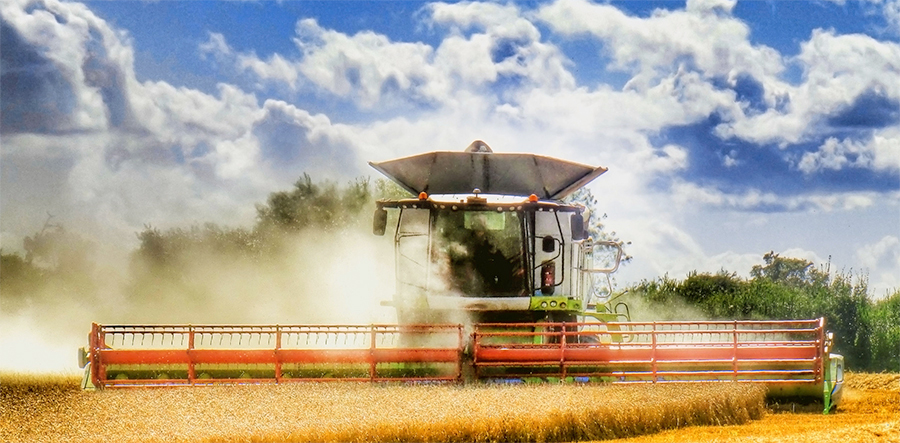
Uncertainty over Britain's future with the European Union and further troubles with farmgate prices are contributing to a fall in English farmland values, according to a new survey.
Farmland values in England fell by 3% in the first quarter of 2016 with average prices dropping below £8,000 per acre, according to Knight Frank.
The drop was the largest quarterly decline since the 5% slide that occurred during the final three months of 2008, following the collapse of Lehman Brothers bank.
The report said agricultural commodity prices remain low 'with little prospect for a strong rebound' in the short term, with the impending EU referendum adding to further uncertainty.
"Predicting where values will head in 2016 and beyond is almost impossible until we know the results of the EU referendum in June," said Andrew Shirley, Head of Rural Research.
"To put the drop into context it should also be noted that the average value of farmland is still only £18/acre lower than it was at the end of 2014, and remains almost 180% higher than it was 10 years ago.
"And despite falling in the two quarters after Lehmans’ collapse, farmland values had recovered all of their lost value and more by the end of 2009."
In case of a Brexit, the report said, it would depend how DEFRA provided a replacement to the support system payments.
The continuing high value of farmland has been underpinning the industry. Many landowners have been able to borrow against their land to stave off a cash-flow crisis. Serious falls in values would remove that cushion, although there is little sign of that happening so far.
UK land, which is already cheaper than in some EU countries, may also become more attractive to international investors.
The future for farm incomes remains rocky with the cost of prime arable land falling for the first time in 13 years, according to Savills.
The estate agent expects prices will continue to fall over the next three years before recovering in 2019.
The key global forecasting organisations, including the FAO, USDA and IMF, have all cut their already pessimistic forecasts for commodity prices in the medium-term to 2020.
"We expect values to be much more varied than in the past five years," said Savills.
"Exceptional prices may still be achieved if all the right factors come together but conversely it is very likely that there will be more farms where potential sale prices fail to reach expectations or they fail to sell. We expect this market will last three to four years until commodity prices start to recover, following stronger global growth."
Shirley said: "Whatever the outcome, we are still seeing strong demand from farmers who are either not reliant on EU subsidy payments or have taken the long-term view that expansion is the way forward for their businesses."
